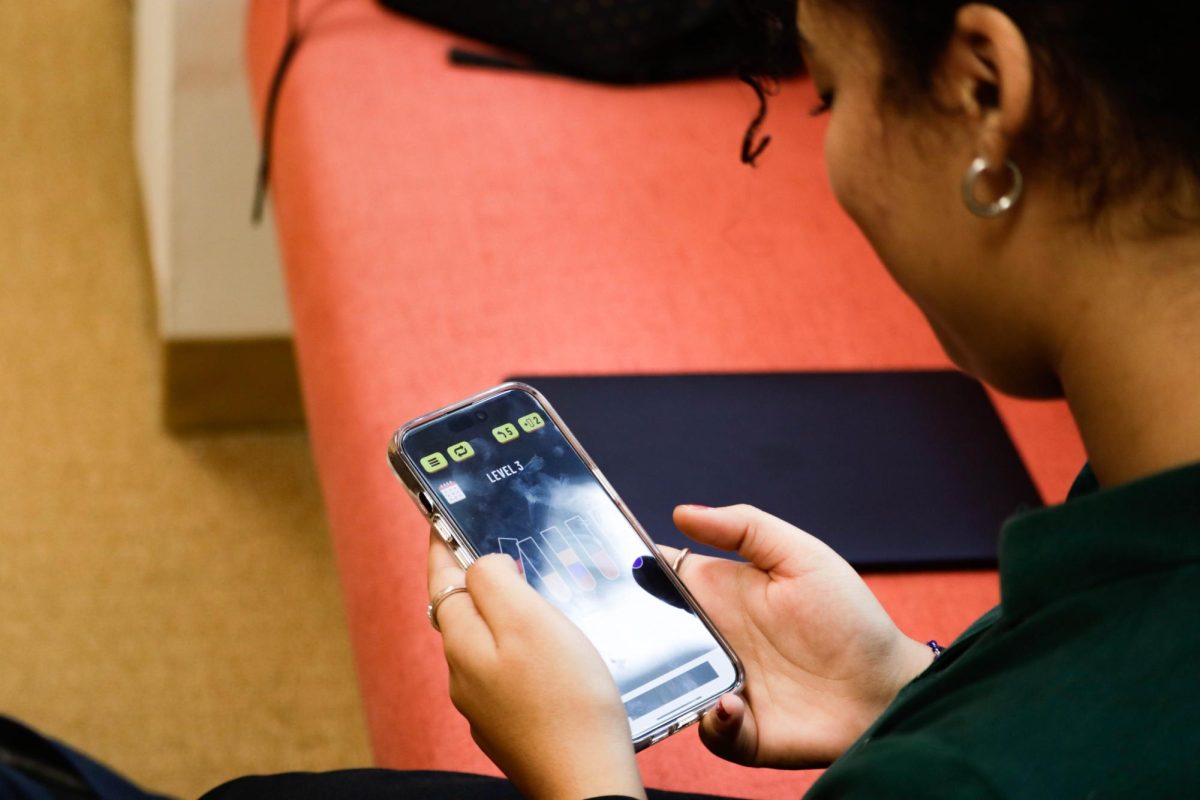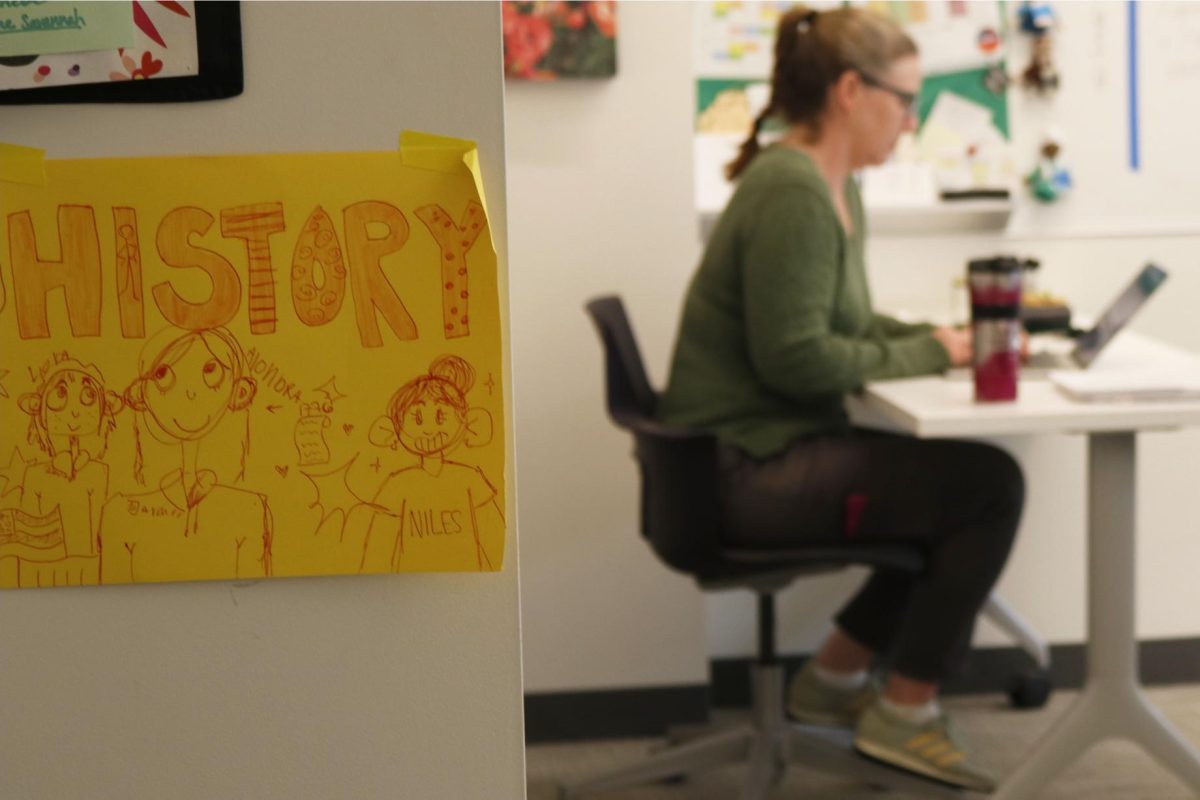From an alarm clock to a way to chat with friends, a phone is a versatile device in your back pocket. Every year, phones become more advanced and useful, making it easier for people to feel like they’re always on their device. According to a 2023 Pew Research study, 46% of teens say they’re online “almost constantly,” a statistic that has almost doubled since 2014-2015.
Technology addiction falls under the category of behavioral addiction. People experiencing this addiction cannot limit or control their tech usage including platforms like social media, video games and online shopping, according to Sandstone Care.
In response to this prevalent matter, Archer’s deans have aimed to help students unplug and connect in person with their peers through Tech-Free Fridays in the courtyard during lunch. School Counselor Lauren Carrington said the reason why teens may feel addicted to their phones could be the habit of scrolling.
“We can get addicted to the behavior pattern of scrolling through our phones or to the routine of being on them at certain times,” Carrington said. “If we’re spending too much time on social media thinking in a certain way or just scrolling — that behavior of scrolling — the more likely it is to become a habit or internalized.”
According to the National Library of Medicine, mindlessly absorbing information online can lead to lower level of mental well-being and can cause emotional suffering. Sophomore Liv Karp said, even without social media, it’s easy to keep scrolling.
“Even if it’s my photo app, I can just scroll and scroll and look at photos from years ago,” Karp said. “[It’s] just entertaining me.”
Not only can people become addicted to the behavior pattern of scrolling, but also from the dopamine hit that comes with receiving a like or a notification. According to Harvard Health, dopamine is a neurotransmitter that controls the feeling of pleasure in the brain’s reward system, and it can reinforce the habit of constantly checking social media because people feel that momentary happiness when they see they have received a like.
“We all have different neurotransmitters and chemicals in our brains that make us feel happy [and] connected,” Carrington said, “and sometimes that is how we can get addicted to things because certain things give us that hint of happy chemical, and we want that happy chemical.”
In a Common Sense Media study conducted with 203 children and teens, 97% said they use their phones during school hours. Similarly, the majority of Archer students have access to phones. Upper school students may use them during school, while middle schoolers are expected to keep their phones away. Students can sometimes be seen engaging with social media or streaming platforms in their free time instead of connecting in person with their friends.
“Normally, when I walk through the hallway during break periods like lunch, I estimate that about 50% of the people I pass are glued to their phones, even if they’re sitting in a group of friends,” 10th grade English teacher Sara Rubin said.

“I had a lot of fun doing the activities,” Karp said. “It was just nice to have a bunch of different ages and grades in the courtyard.”
On these Fridays, deans asked a different upper school class each week to hand in their phones for the day to help foster face-to-face connection. In January, all grades except for sophomores participated in a full phone-free day. Rubin was also in favor of these Tech-Free Fridays because she said students may need an authority figure to help structure rules about phone usage.
“It’s hard, especially with something that can be addictive, for people to set boundaries for themselves,” Rubin said. “Although it’s a little uncomfortable, I think it can be helpful to have an outside force or authority figure come in and say, ‘Right. These are the rules for how we use this thing,’ and push you to kind of innovate how you use something that you’re used to using all the time.”
Carrington said, in this online age, it’s easy to feel a dependence on phones or start to develop an addiction, so implementing new practices can help people distance themselves from devices. She said, in order to create change, people need to reflect upon their behaviors. Questioning habits surrounding phone usage is a good first step, and mindfulness and meditation are also good practices for mental health, according to Carrington.
“If we want to be kinder to one another, if we want to stop judging others so harshly, you know, we have to start trying to not judge ourselves first, right?” Carrington said. “So just that if we’re constantly distracted or caught up in what everyone else is doing, we never have that space to work on ourselves and then impact the world.”















Pasha • Mar 7, 2024 at 10:16 am
This is a fantastic article! It was written so well! So proud of you!
Vivi • Feb 25, 2024 at 9:08 pm
Awesome article Katie Ray!! Really well put together.